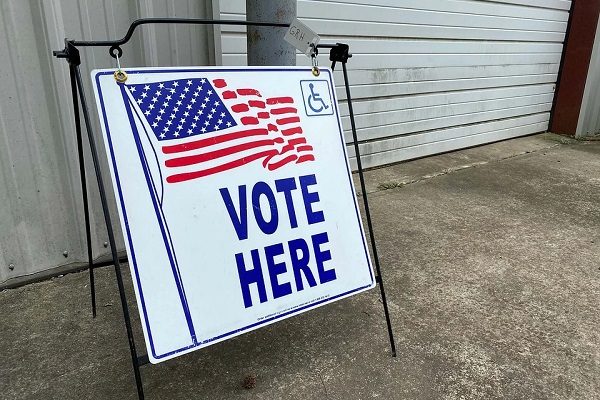
–>
December 29, 2022
My mind is locked in an endless loop. Our country is going to hell. We must do something. The main thing we can do is vote. Our votes don’t count. Our country is going to hell.
‘); googletag.cmd.push(function () { googletag.display(‘div-gpt-ad-1609268089992-0’); }); }
As I pass through the our-votes-don’t-count step, an almost half-baked idea recurs that involves the courts. I understand that the courts have been hostile and that some readers may be tempted to respond with impatience. Here I would ask for help. To the extent that criticisms are constructively expressed, we may be able to crowd-source this idea into a workable solution. If nothing else, the presentation of the idea includes a fascinating piece of history. Here goes.
US Constitution, Article IV, Section 4: “The United States shall guarantee to every State in this Union a Republican Form of Government, and shall protect each of them against Invasion; and on Application of the Legislature, or of the Executive (when the Legislature cannot be convened) against domestic Violence.”
The idea is to use the first clause, called the Guarantee Clause, to bring various actions to enforce voting integrity. OK, given how well the feds have protected states against invasion, we’re not off to a good start. But it gets worse. Received legal wisdom is that the Guarantee Clause is not justiciable — nothing for the courts to do here. But a quote from Justice O’Connor will explain why it is not hopeless (New York v. United States, 505 U.S. 144 [1992]):
‘); googletag.cmd.push(function () { googletag.display(‘div-gpt-ad-1609270365559-0’); }); }
We approach the issue with some trepidation, because the Guarantee Clause has been an infrequent basis for litigation throughout our history. In most of the cases in which the Court has been asked to apply the Clause, the Court has found the claims presented to be nonjusticiable under the “political question” doctrine.
The view that the Guarantee Clause implicates only nonjusticiable political questions has its origin in Luther v. Borden (1849), in which the Court was asked to decide, in the wake of Dorr’s Rebellion, which of two rival governments was the legitimate government of Rhode Island. The Court held that “it rests with Congress,” not the judiciary, “to decide what government is the established one in a State.” Over the following century, this limited holding metamorphosed into the sweeping assertion that “[v]iolation of the great guaranty of a republican form of government in States cannot be challenged in the courts.”
This view has not always been accepted. In a group of cases decided before the holding of Luther was elevated into a general rule of nonjusticiability, the Court addressed the merits of claims founded on the Guarantee Clause without any suggestion that the claims were not justiciable.
More recently, the Court has suggested that perhaps not all claims under the Guarantee Clause present nonjusticiable political questions. Contemporary commentators have likewise suggested that courts should address the merits of such claims, at least in some circumstances.
We need not resolve this difficult question today.
Those last words quoted mean, of course, that all of these statements are obiter dicta, not holdings. To grasp the basis for Justice O’Connor’s argument requires a look at Luther v. Borden, the first case invoking the Guarantee Clause.
‘); googletag.cmd.push(function () { googletag.display(‘div-gpt-ad-1609268078422-0’); }); } if (publir_show_ads) { document.write(“
After the Revolutionary War Rhode Island continued under its 1663 royal charter, and only men who owned property could vote — about 80 percent of the men in 1789. With industrialization and immigration, only 40 percent could vote in 1840. Thomas Wilson Dorr, the scion of a wealthy Providence family, took up the cause. Elected to the General Assembly, Dorr failed to get his reforms enacted. He then organized a People’s Convention to pass a new state constitution and held an election under it. By spring of 1842, Rhode Island had two governments, one under the charter, the other under the people’s constitution. The charterite government declared martial law. Dorr responded by raising a militia of about 200 men and two outdated cannons. They marched on the state arsenal in Providence, which was defended by the charterite militia (including Dorr’s father, brother, and uncle). The cannons misfired, and Dorr’s men withdrew; no one was injured. Dorr was eventually convicted of treason against Rhode Island and sentenced to life in solitary confinement and hard labor; he served less than two years of his term, but, his health broken, he died a few years after his release. By 1843, Rhode Island had a new state constitution that incorporated many of Dorr’s proposals.
Would it surprise you to hear that the charterites hunted down Dorr’s supporters? Martin Luther, a Dorrite, was arrested by Luther Borden, a charterite. Luther sued Borden, one claim being that Borden had no authority to arrest him; the charterite government was illegitimate because, inter alia, operating under a royal charter, it was not a republican form of government. Justice Taney, whom our current Congress just canceled, found that the fundamental question was which of the competing governments was the legitimate one, and that was a question for Congress, not the courts. Even Justice Woodbury in his dissent agreed with that conclusion. Congress had accepted representatives that Rhode Island sent to it under the 1663 charter; Congress should decide which representatives to seat during such a conflict.
Stretching this decision into a rule that the Guarantee Clause is not justiciable seems a bit extreme, as Justice O’Connor wrote. The guiding principle is that the Courts should avoid “political questions.”
What can we do? Although painful to write, the history of Roe v. Wade serves as a template, the huge difference being that our demands will lie within constitutional limits. The pro-abortion battle plan identified sympathetic federal districts and sought potential litigants in those districts. Legal ethics prohibits the direct solicitation of clients, but the pro-abortion lawyers claimed that their actions fell under the public interest exception. Voting integrity is clearly in the public interest.
Whom to recruit? People who went to vote and were told they had already voted. The suit would demand that records be produced to show what happened, minimally whether the thief voted in person or absentee. Standing is assured; it is noteworthy that Roe v. Wade began with a single plaintiff.
Depending upon what excuses the officials may devise, this approach could lead to a demand for voter identification or ironclad chain of custody procedures. The essential argument would be that any system of recordkeeping that could so easily disenfranchise a voter is not consistent with “a Republican Form of Government.” Good recordkeeping is not a political question.
Another approach is to focus on the adjudication of ballots. When government officials alter a ballot, the original and adjudicated ballots should be preserved and sequestered. Ideally, adjudicated ballots should be counted separately and automatically audited if their number exceeds the margin of victory.
During the 2020 election in Georgia, Fulton County officials adjudicated over 100,000 ballots; statewide, the margin of victory was 11,779. Although identifying a plaintiff may be an issue here, the Georgia Supreme Court recently reversed the dismissal for lack for standing of several voting cases brought in 2020. A recent state court decision in Delaware clearly articulated that a major purpose of voting procedures is to prevent fraud, implying that fraud need not have occurred before implementing safeguards. Here the focus would be on maintaining records in a system that could be rapidly and thoroughly audited to prevent fraud, which is not a political question.
What do you think? Toss it or bake until done?
Frank A. Greco is a physician whose practice is geriatric medicine.

Image: tom.arthur via Flickr, CC BY-NC-SA 2.0.
<!– if(page_width_onload <= 479) { document.write("
“); googletag.cmd.push(function() { googletag.display(‘div-gpt-ad-1345489840937-4’); }); } –> If you experience technical problems, please write to [email protected]
FOLLOW US ON
<!–
–>
<!– _qoptions={ qacct:”p-9bKF-NgTuSFM6″ }; ![]() –> <!—-> <!– var addthis_share = { email_template: “new_template” } –>
–> <!—-> <!– var addthis_share = { email_template: “new_template” } –>






